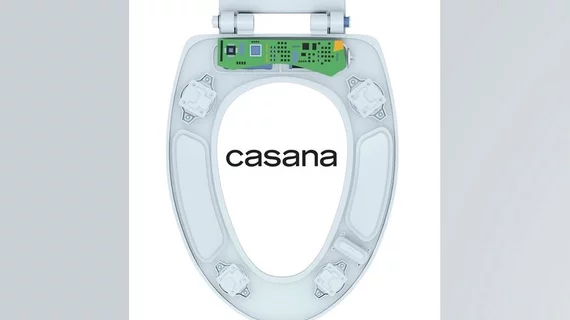Casana raises $14M to bring toilet seat-based heart monitoring system to market
Casana, a Rochester, New York-based healthcare technology company, announced that it has raised $14 million in Series A funding. The money is expected to go toward bringing to market the company’s first solution, a toilet seat-based cardiovascular health monitoring system.
The Heart Seat is a cloud-connected device that tracks a user’s cardiovascular health, saving data so that physicians can gain a greater picture of how symptoms are progressing over time.
Casana also announced that Austin McChord is now the company’s CEO.
“Our goal is to be able to monitor a patient’s health more naturally at home, without interruption of their daily routine,” McChord said in a statement. “The toilet seat is not a tech gadget. Unlike a wearable device, you can’t take it off, forget to use it or mess it up. If we do our job right, when patients use our effortless in-home heart monitoring device, we are invisible unless their health status needs attention.”
Some of the funding is also expected to be used to evaluate potential solutions for heart failure patients, according to the statement.
Bemis Manufacturing Company, a group known for building toilet seats, participated in the financing round, which was led by General Catalyst and the Outsiders Fund.
Casana was formerly known as Heart Health Intelligence.

